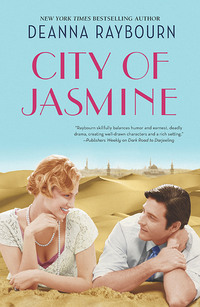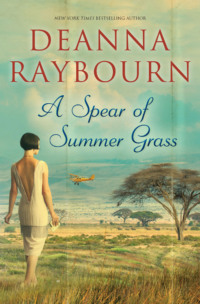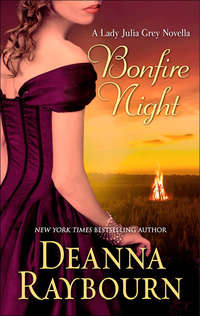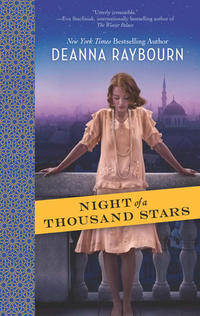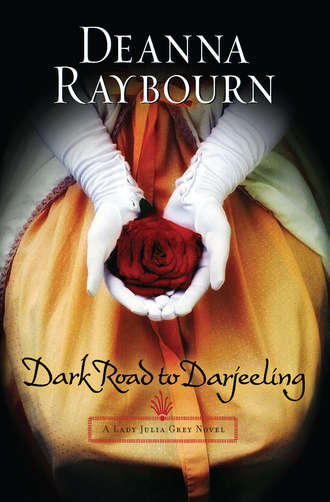
Полная версия
Dark Road to Darjeeling
Portia toyed with her soup. “I thought it might be possible for you to do a bit of detective work whilst we are there. I should like to know the disposition of the estate. If Jane is going to require assistance, legal or otherwise, I should like to know it before the moment is at hand. Forewarned is forearmed,” she finished, not quite meeting his eyes.
Brisbane signalled the waiter for more wine and we paused while the game course was carried in with the usual ceremony. Brisbane took a moment to make certain his duck was cooked to his liking before he responded.
“A solicitor could be of better use to you than I,” he pointed out.
“Than we,” I corrected.
Again he raised a brow in my direction, but before we could rise to battle over the question of my involvement in his work, Portia cut in sharply.
“Yes, of course. But I thought it would make such a lovely end to your honeymoon. Jane’s letters are quite rapturous on the beauties of the Peacocks.”
“The Peacocks?” My ears twitched at the sound of it. Already I was being lured by the exoticism of the place, and I suspected my husband was already halfway to India in his imagination.
“The Peacocks is the name of the estate, a tea garden on the border of Sikkim, outside of Darjeeling, right up in the foothills of the Himalayas.”
“The rooftop of the world,” I said quietly. Brisbane flicked his fathomless black gaze to me and I knew we were both thinking the same thing. “Of course we will go, Portia,” I assured her.
Her shoulders sagged a little in relief, and I noticed the lines of care and age beginning to etch themselves upon her face. “We will make arrangements to leave as soon as possible,” I said briskly. “We will go to India and settle the question of the estate, and we will bring Jane home where she belongs.”
But of course, nothing that touches my family is ever so simple.
The Second Chapter
On the seashore of endless worlds children meet.
—On the Seashore
Rabindranath Tagore
It was not until we were almost halfway to India that I manoeuvred enough time alone with Portia to pry the truth from her. Plum was busily occupied sketching a pretty and penniless young miss bound for India to marry an officer, and Brisbane was closeted with the ship’s captain, both of them behaving mysteriously and pretending not to. Portia had evaded me neatly during our preparations for leaving Egypt, but I knew her well enough to know she had not made a clean breast of matters at the dinner table at Shepheard’s, and I meant to winkle the truth from her once and for all.
She settled herself upon the small private deck attached to my cabin where I had lured her with the promise of a luscious tea en famille. She glanced about. “Where are the menfolk?” she asked, her voice touched by the merest shade of anxiety.
“Plum is flattering an affianced bride and Brisbane is very likely doing something which will result in our quarrelling later.”
“I thought we were taking tea together,” she commented, watching me closely.
I narrowed my eyes. “No, we are quite alone.”
She made to rise.
“Sit down, Portia. And tell me everything.”
Portia subsided into the chair and gave a sigh. “I ought to have known you would find me out.”
“I have every right to be furious with you. I know you have intrigued to get us to India under false pretenses, but you might at least have told me why. I presume it does have to do with Jane?”
She nodded. “That much is true, I promise you. And I am worried about the estate. Nothing I told you in Egypt was a lie,” she said, lifting her chin.
“Yes, but I suspect you left out the most important bits,” I protested.
She clamped her lips together, then burst out, “I think Freddie Cavendish was murdered.” She buried her face in her hands and did not look at me.
I swallowed hard against my rising temper and strove to speak gently. “What makes you believe Freddie was murdered?”
She lifted her head, spreading her hands. “I do not know. It is a feeling, nothing more. But Jane’s letters have been so miserable. She felt so wretched after Freddie died, so low that she felt compelled to write to me even though she feared I would not reply.” Her expression softened. “As if I could refuse her anything. After the first few months, she began to feel a little better, but there was always a sadness to her letters, a sort of melancholia I had never seen in her before.”
“Of course she is melancholy,” I burst out in exasperation. “Her husband is dead! She is all alone in a strange land with people whom I suspect would just as soon not see her safely delivered of her child.”
Portia shook her head slowly. “I could not pry too deeply. I did not want to raise fears in her that she might not have, but the more I read, the more troubled I became. She does not feel safe there, nor happy. And if there is a chance that Freddie was murdered, it is most likely he was killed for the inheritance.”
“And if Freddie was killed for the inheritance,” I began.
“Do not say it,” she ordered, her green eyes cold with fear.
“Then his child may be in danger,” I finished. “I think you may ease your mind upon one point. Jane is in no immediate peril.”
She bristled. “How can you possibly know that?”
“Think, dearest. Murder is a tricky business. One tiny detail missed, one vital clue dropped, and it’s the gallows. No, a clever murderer would only strike when absolutely necessary. With Freddie out of the way, there is no need to harm Jane. She might well be carrying a daughter, in which case, whoever meant to put Freddie out of the way need only wait and let time and nature and the law take their proper course. But if the child is a boy, well, killing an infant seems vastly easier than killing a grown person. One need only smother the child in its cradle and everyone would put it to natural causes. Even if the worst has been done and Freddie was murdered, there is no call for any harm to come to Jane. It is only the child, and then only a male child, who might be in danger,” I reassured her.
Portia shook her head slowly. “I cannot be convinced. Let us presume for a moment that Freddie was murdered. What if his killer grows impatient? What you say is logical, but murderers are by nature impetuous. What if he grows tired of waiting and decides to settle matters now? No, Julia, I cannot be at ease about Jane, not until I have seen her for myself. I mean to be on hand when Jane delivers her child, and I mean to protect the pair of them,” she said fiercely.
I put my hand to hers. “And in the meanwhile, you want us to find out what happened to Freddie?”
“If Freddie was not murdered, then Jane and her child will be safe,” she said simply. She hesitated. “There is something more.”
I sighed. “I ought to have known there would be.”
“I do not want Jane distressed. If it has not occurred to her that Freddie might have been murdered, I do not want to put thoughts into her head. You must exercise discretion.”
“So I am to investigate a possible murder without actually revealing it to the widow?” I asked, gaping a little.
“Only until I have had a chance to broach the subject gently with her. Give me a little time to determine her state of mind, and then you may involve her, but not before.”
Portia’s expression had turned mulish, and I knew that look well. I threw up my hands. “Very well. I will be as discreet as I am able until you tell me otherwise.”
Portia nodded in satisfaction. “I knew I could depend upon you, dearest.”
We lapsed into silence then, listening to the slap of the waves against the side of the ship. I gave her a look of reproof. “You might have told us the truth. Brisbane and I still would have come.”
She slanted me a curious glance. “Are you so certain? Brisbane is a husband now. He will have lost all common sense.”
I bridled. “He has not,” I began, but even as I said the words, I wondered. Brisbane had been mightily protective of my involvement in his detective work before our marriage. I had little doubt he would prove more difficult now that I was his wife. “You may be right,” I conceded.
Portia rolled her eyes heavenward. “Of course I am right. I did not even dare to tell Plum the truth, and he is only a brother. A husband cannot be trusted to think clearly in any situation that touches his wife’s safety.”
“That may be, but at some point he will notice we are investigating a murder,” I pointed out waspishly. “He is not entirely devoid of the powers of observation.”
“I should hope not. I depend upon him to join the investigation.”
“When did you intend to present him with the real reason for our being in India?”
Portia nibbled her lower lip. “When we have arrived in Calcutta,” she said decisively. “It will be far too late for him to do anything about it at that point.”
Our arrival in the colourful port of Calcutta ought to have been the highlight of our voyage. In fact, it had been ruined by the prickling of my guilty conscience. I had thrilled to the exoticism of the place, but even as I stood next to my husband at the railing of the ship watching the city draw ever closer, I had been consumed with remorse at not telling him what Portia was about as soon as she had made her confession to me. Calcutta smelled of flowers and woodsmoke, and above it all the air simmered with spices, but to me it would always be soured by the bitterness of my own regret.
Of course, Brisbane had done nothing to ease those feelings once I had revealed all to him. Fearing his reaction, I had waited until several days after our arrival in Calcutta to unburden myself, and to my astonishment, his only response had been, “I know.” Where or how he had divined our true purpose, I could not imagine. I only knew I felt monumentally worse. We did not speak of it again, but a slight froideur sprang up between us, imperceptible to others, but almost palpable to us. In company little seemed to have changed. Brisbane was courteous to a fault, and I exerted myself to be charming and winsome. It was only when we were alone that the cracks told. Once the door closed behind us, we said little, and it was only when we put out the light that harmony was once more restored, for our demonstrations of marital affections continued on as satisfying as ever. In fact, though I blush to admit it, they tended to be somewhat more satisfying on account of Brisbane’s mood. His irritation with me prompted him to defer some of the usual preliminaries and proceed with even greater vigour and demand. I do not know if he intended to put me off with his insistent attentions, but he seemed content at my response. Perhaps our concord reassured him—as it did me—that this was simply a short run of troubled waters we should pass safely over in time. I did not like to be at odds with him, and I did not believe he enjoyed our disagreement any more than I, but I promised myself everything would be set to rights when we reached the Peacocks. Brisbane loved nothing so much as a good mystery to sink his teeth into, and I loved nothing so much as Brisbane.
“What do you mean you are not going?” I demanded of Brisbane. It was the last evening of our stay in Calcutta and our suite was in a state of advanced disarray. Morag had left off packing for our departure to help ready us for a farewell dinner being given in our honour. “Brisbane, you must go. I know the viceroy is a terrible bore, but surely you can think of something to say to him,” I urged. “He’s quite keen on irrigation works. Ask him about that and you won’t have to say another word the whole of the evening.”
I peered at the gown Morag was holding out for my inspection. “No, we are quite late enough. There is no time to heat the pressing irons,” I said, waving away the creased peacock-blue silk. “My pink will suffice.”
She pursed her lips and jerked her head towards the bathroom door. “The master’s bath is ready,” she intoned solemnly.
I puffed out a sigh of impatience. “Morag, I have told you before, there is no need to refer to him as the master. It is positively feudal.”
“I rather like it,” Brisbane put in.
Morag gave him a nod of satisfaction. “You’ll want your shoes shined,” she told him. “The hotel valet’s made a pig’s breakfast of it, and no master of mine will go about in dirty shoes. I will see to that at once.”
“Very well, Morag,” Brisbane said kindly.
I cleared my throat. “Yes, very well, Morag, but do you think you might manage to help me dress? You are actually my maid, you know. Mr. Brisbane does have the hotel valet to assist him.”
Morag sniffed. “Foreign devils. As if they knew how to take care of a proper Scottish gentleman. I shall have to find the pink. Keep your wig on,” she finished saucily.
She left, banging the door behind her, and I turned to Brisbane. “She was impossible enough before you came along. Now she is thoroughly unmanageable. I ought to let you take her on as valet and find a new lady’s maid for myself,” I added in some irritation.
Brisbane said nothing, but began to divest himself of his clothing. I gave him a broad smile. “I am glad you changed your mind about coming tonight,” I told him.
“I haven’t,” he said, dropping his coat. The waistcoat and neckcloth followed swiftly and he began to work his way out of his collar and cuffs. “When I said I was not going, I was not referring to dinner with the viceroy, although you are quite right, as it happens. The fellow has a positive mania for drains. And railways,” he added, dropping his shirt onto the growing pile.
With perfect immodesty, he began to disrobe his lower half and I let my gaze slide to the clothes upon the floor. Even after so many months of marriage, I was still somewhat shy about such things. Of course, I had spent the first few weeks of our honeymoon simply staring, but it had finally occurred to me that this was impolite and I had made a devoted effort to afford him some measure of privacy, although he seemed thoroughly unconcerned. I put it down to his Gypsy blood. In my experience, Gypsies could be quite casual about nudity.
Brisbane, now completely unclothed, went into the bathroom and flung himself into the tub with a great slosh. He was something of a sybarite, and I had discovered that although he could be remarkably relaxed about domestic arrangements in general, he insisted upon a scalding hot bath before dinner, an activity we sometimes shared with vastly interesting results. But there would be no such goings-on afoot this evening. I followed him, tightening the sash of my dressing gown.
“Then perhaps you will be good enough to clarify. If you are content to dine with the viceroy, then where precisely are you not going?” I asked.
Brisbane took up a washcloth and cake of soap and began to scrub vigorously. “I am not leaving Calcutta,” he said.
The sight of his broad, muscular chest was a diverting one, and it took a moment for the words to register completely. I blinked at him. “I beg your pardon?”
He stopped soaping himself and fixed me with that implacable black stare. “I. Am. Not. Leaving. Calcutta.”
“Yes, I did hear you the first time,” I said with exaggerated politeness. “But it makes no sense. We are supposed to depart for Darjeeling tomorrow,” I protested. “The arrangements have been made.”
“Without my knowledge,” he pointed out.
I felt a thorn-prick of guilt and thrust it aside. I ought not to have waited until almost the end of our sojourn in Calcutta to explain about Portia’s suspicions, but it had never occurred to me that he might simply refuse to oblige us. “What am I supposed to tell Jane? The Cavendishes are expecting us.”
Brisbane curled a lip. “The domestic arrangements of your hostess are not my foremost concern.”
“Pray, what is your foremost concern?” I demanded.
“That my wife and her sister think they can twitch the puppet strings and make me dance to their tune,” he replied. His tone was light, but there was a hard gleam in his black eyes that I did not like.
“I have apologised for that,” I replied evenly. “I myself did not know of Portia’s plans until well after Aden. What was I supposed to do then? I could not very well confess the truth to you and demand to be let off at the next port. Calcutta was the next port.”
“You might have trusted me enough to tell me the truth as soon as you learned of it,” he said in a reasonable tone that lashed my conscience.
I considered for a moment, then drew the sharpest weapon in my arsenal. “I understand you are put out with me,” I began. He curled his lip again and I ignored it. “But I should like to remind you that you have not always been forthright yourself.”
He stopped scrubbing and speculation dawned in his eyes. “You know,” he said flatly, and—I thought smugly—with a trace of admiration.
“Yes, I do know you apprehended a jewel thief on board the ship. I know the captain consulted you and requested your help and I know you unmasked the culprit at considerable personal risk. I understand the fellow was armed with an Italian stiletto dagger,” I finished.
“As it happens, it was Japanese,” he corrected.
“Near enough,” I retorted. “But none of those facts were related to me by you.”
He had the grace to look a trifle less adamant than he had a moment before. “I was in no real danger,” he said finally, his expression softening. He thrust a hand through his long black hair, tousling the hair damply and causing a wet lock to drop over his brow. “And if I were, it is my lot. You cannot protect me.”
“And you cannot protect me,” I returned. I went to him and sat upon the edge of the bathtub, putting a hand to his cheek, just touching the crescent moon scar that rode high upon one cheekbone. “I know you wish to wrap me in cotton wool and leave me on the highest shelf when you go off adventuring, but that simply will not do. I mean to be your partner in every sense of the word.”
He rose from the steaming water and wrapped his arms about me, wetting me as he kissed me thoroughly. I put my arms about his neck, happy that he understood.
He pressed his lips to my cheeks, my eyelids, grazed them over the curve of my ear. And whispered firmly, “No.”
I jumped back. “What do you mean, ‘no’? You cannot just dismiss me out of hand.”
“And neither will I recklessly expose you to danger. You are my wife. It is my place to protect you.” He stepped from the bath and strode across the marble floor to reach for a towel, rubbing himself briskly. His sleek black head disappeared into the folds of the towel, but I kept up my part of the conversation, no easy thing with the view he presented me. It was a testament to my state of mind that I scarcely noticed the long, hard stretch of the muscles of his thighs.
“Good God, Brisbane, is that what we have become? Conventional? Normal? Is that what you want from me, an ordinary marriage to an ordinary wife? I thought my boldness was what drew you to me!”
He dropped the towel so that just his eyes showed above it. “To be precise, it is among your most attractive and most maddening qualities,” he said.
“You cannot expect me to sit quietly at the fireside whilst you see the world,” I told him, hating the pleading note that had crept into my voice.
He dropped the towel and wrapped it about his waist, securing it low upon his hips. “I have given you the world these last months, have I not?”
“A honeymoon is not the same. Your work is the greatest part of who you are, and if you will not share that with me, then you have locked me away from what is most important.”
“You do not understand,” he began.
I broke in, my voice harsh. “No, I do not. And I cannot. It seems the cruelest trick to offer me marriage under pretenses you knew were false.” I regretted the words as soon as I had uttered them, but of course I could not call them back. They had flown at him, and I had only to look at his face to see they had flown true and pierced him.
“Do you regret marrying me?” His voice was deadly calm. If he had raged at me, I would have been at my ease. But this cool detachment was a mood I had seen once or twice before and I knew to be wary of it. He could not be touched when he was in the grip of one. He was polished and hard as an ebony chess king, implacable and immovable.
“Of course not,” I said, deliberately gentling my tone. “You know the depth of my feeling for you. But I also esteem what I become when I am with you, when we are working, hand in hand. And you seem determined never again to let that happen.”
“And you are determined to press the matter until I do,” he countered. It was astonishing to me that he could stand before me wearing nothing but a bath towel and yet preserve as much dignity as if he’d been draped in a judge’s robes. But then Brisbane wore anything well, I reflected.
I gave him a rueful smile. “You know me well enough to know that.”
“Then we are at an impasse,” he observed.
“And you will not leave Calcutta?” I asked one last time.
“Not now,” he said gravely. “I have business here.”
I gaped at him. “Business? What manner of business? I know nothing of this.”
“As it happens, the viceroy has invited me to join a hunting party he is putting together. He is heading out after tigers. There is a man-eater preying upon a village near Simla. It promises to be excellent sport.”
My mouth gaped farther still, and I shut it with a decisive snap. “You do not hunt,” I said after I had recovered myself.
He lifted one heavy shoulder in a careless shrug. “People do change.”
“Not you!” I cried. “It is one of the things I depend upon.”
His expression did not alter, but I smelled something of savagery in him just then. “You will have your secrets, Julia. You must leave me mine. I will see you soon enough, I promise you that. And so we will leave it.”
Even then I could have mended it. I could have conceded his concerns for my safety and his outrage at my sister’s manipulations, his sudden need for convention and normalcy. I could have trimmed myself to fit the mould of a proper wife. It would have taken but a phrase, gently spoken, and a smile, sweetly offered. But I had been such a wife once before, and I had vowed never again.
So I did not offer him either the gentle phrase or the sweet smile. I merely turned on my heel and left him then, closing the door firmly behind me.
And so I set my gaze toward Darjeeling and left with my sister and brother, my maid, Morag, and a party of porters that would have put Stanley’s expedition to shame.
“Is it absolutely necessary to travel with so many men?” I demanded of Portia. “It looks as if we mean to claim Darjeeling in the name of the March family and establish a colony of our own. For heaven’s sake, Portia, the porters are laughing at us.”
Portia shrugged. “They’re being paid well enough to carry Buckingham Palace on their backs if we ordered it.” I continued to needle her about the size of our party, but she did not rise to the bait. She knew Brisbane and I had quarrelled over the investigation and that her methods had been at the centre of our disagreement. Nothing more need be said upon the matter, at least not yet. Once my anger had burnt itself to cinders, no doubt I would have need of her sisterly bosom for a good weep, but for the present, I was content to embark upon the adventure we had set ourselves. I could not worry over Brisbane, I told myself sternly. He had sent his trunks with us as he required only a small bag on his trip, and I held on to the sight of those trunks as proof I would see him again soon. Besides, I reflected, there was quite enough to do just to navigate into the foothills of the Himalayas with an increasingly bitter Plum on our hands. As it happened, he had taken Portia’s manipulations no better than Brisbane had, and it had only been her pointed threats to dispatch a telegram to Father that had persuaded him to continue on with us.
Our unwieldy party left Calcutta behind and began to wind its way slowly up the road to Darjeeling. We might have boarded the train, but Portia had taken one look at the tiny railway and stated flatly that she would not put a foot onto such a toy. Plum grumbled exceedingly at the extra time and trouble it required to travel by road, but in the end I was glad of it, for the air grew thinner and colder outside of Darjeeling, and the scenery changed as we wound our way ever upward. The first high peaks of the Himalayas hove into view, and I nearly fell from my horse when I saw at last the great snow-capped peaks of Kanchenjunga. It was the most beautiful, most majestic sight I had ever seen, and everything I had ever known before paled in comparison to that one extraordinary horizon.


